|
Dusty Dog Reviews The whole project is hip, anti-academic, the poetry of reluctant grown-ups, picking noses in church. An enjoyable romp! Though also serious. |

|
Nick DiSpoldo, Small Press Review (on Children, Churches and Daddies, April 1997) Children, Churches and Daddies is eclectic, alive and is as contemporary as tomorrow’s news. |
Volume 219, April 2011
The Unreligious, Non-Family-Oriented Literary and Art Magazine
Internet ISSN 1555-1555, print ISSN 1068-5154
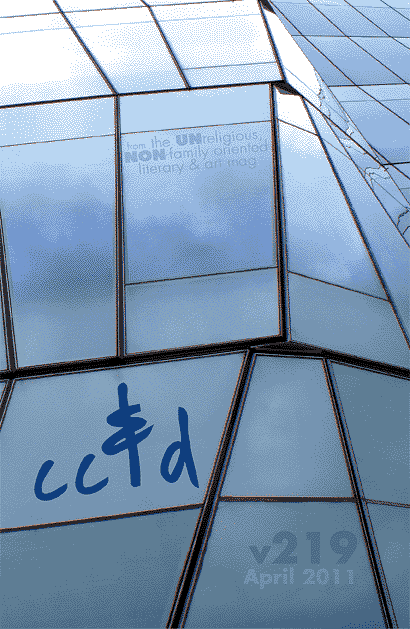
see what’s in this issue...
Note that in the print edition of cc&d magazine, all artwork within the pages of the book appear in black and white.
|
Order this issue from our printer as a a digest-sized paperback book (5.5" x 8.5") perfect-bound w/ b&w pages You can also get this from our printer as a a ISBN# paperback book “Falling Into Place” (6" x 9") perfect-bound w/ b&w pages |

poetry
the passionate stuff
As I sit above the grave & look down, IFritz Hamilton
As I sit above the grave & look down, I
jump into the hole & pull poor Hammy out/ he
hothead clean down to my toes, with a firy
me & you seem to be dead!” He explodes with a terrible
you live?” An excellent observaton as the
me, but I feel I’m gonna cry/ then a clod of dirt covers
casket before I blow a gasket, making
infinitely dead?/ for me there’s nothing
grumbles, & we both laugh like Hell/ I throw up all
divine dope must use my soap, which
he came out as Paul who sayeth:
the lysol runneth out, &
gives the Christchild to
Jesoo wants !
|
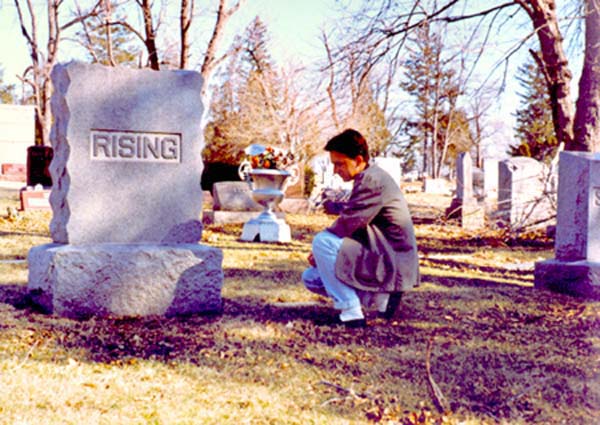
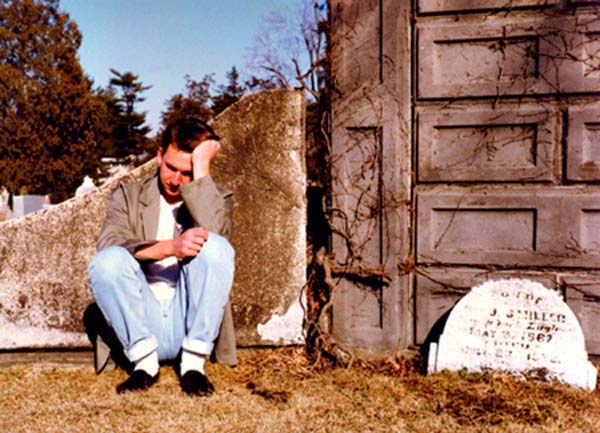
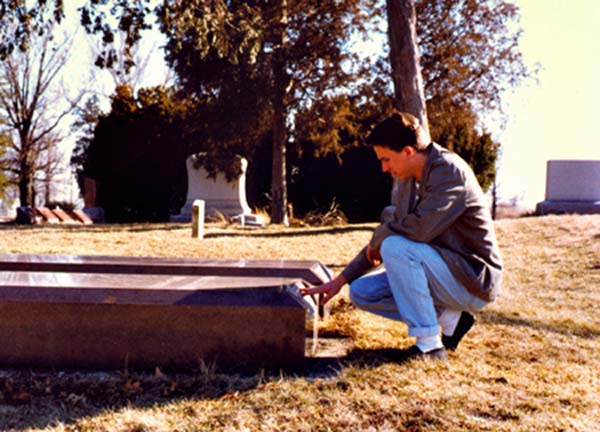
Flowerless GravesitesJe’free
I have seen them in father’s cemetery
Probably friends, grandmothers or infants
Death is lonely. Mere crumbs of leaves are lonelier.
Sometimes, there are two or more crows
I came to a point of thinking about
There will be footsteps heading there.
Reunion of the present and the absent.
|
Stop Bitching, and Get to Know MeCEE
Sixteen
|
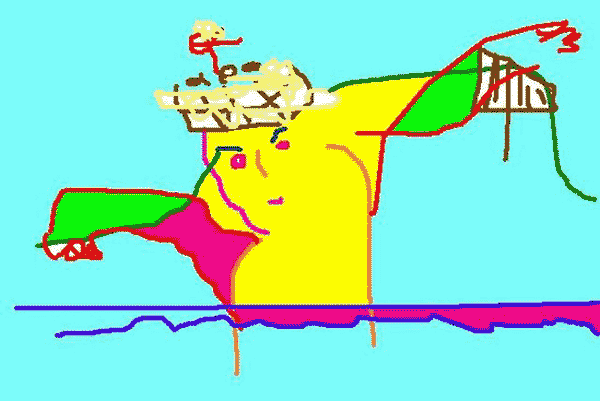
Prince From Africa, art from the HA!man of South Africa
Mr. Flip as a SarcophagusKristine Ong Muslim
He is measured, carved with
Previously published in New Madrid Vol. III, No. 2, Summer 2008
|
| Janet Kuypers reading the Kristine Ong Muslim poem Mr. Flip as a Sarcophagus from the April 2011 issue (v219) of cc&d magazine (which is also available as a 6" x 9" ISBN# book Falling Into Place |
|
Watch this YouTube video read live 04/05/11, live at the Café in Chicago |

art by Brian Hosey and Lauren Braden (From Uxmal to Isla Mujeres)
GuardianshipJudith Ann Levison
They set their white plastic chairs
|

Hubble Observes Infant Stars in Nearby Galaxy (2007), image from NASA and the Hubble Telescope with more information at HubbleSite
The HelicopterGPA (The Poetic Unsub)www.iblowyourmind.com www.myspace.com/gpagreatestpoetalive https://facebook.com/greatestpoetalive
Over our neighborhood, once again bullets soar, and the helicopter flies.
Chalk lines drawn as the once flowing blood dries.
Confused and dumbfounded with the lack of solutions to the violence, so exasperated, a city sighs.
Persistent police pressure burst silent pipes providing only productive lies.
Black on black crime brings the same result; another one of us dies!
In a part of the city where there lack of affluence, the violence escalates because of crack buys.
|


Antennae Galaxies amd Star Cluster Bursts,... images from NASA and the Hubble Telescope with more information at HubbleSite
The Big BangJoy Davis
History says
I didn’t expect to wonder
The door slams
|


a small Magellan Cloud, and a Spitzer and Hubble Space Telescopes image... images from NASA and the Hubble Telescope with more information at HubbleSite
| Janet Kuypers reading the Joy Davis poem Big Bang Theory from the April 2011 issue (v219) of cc&d magazine (which is also available as a 6" x 9" ISBN# book Falling Into Place |
|
Watch this YouTube video read live 04/12/11, live at the Café in Chicago |
What’s EasierMaxwell Baumbach
if it takes less muscles to smile
time for work
family function
after that
|
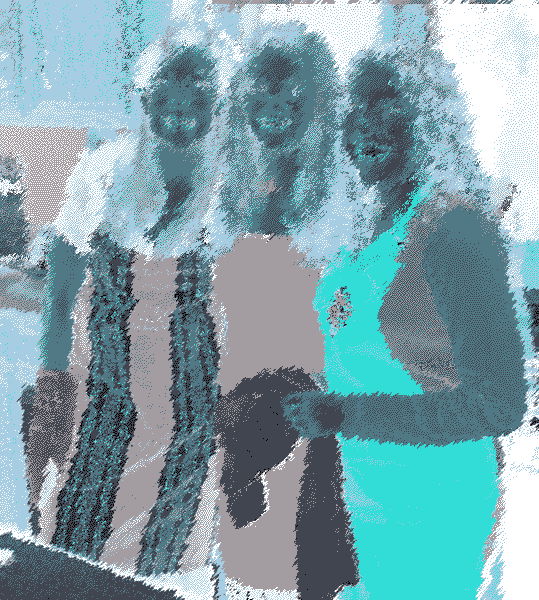
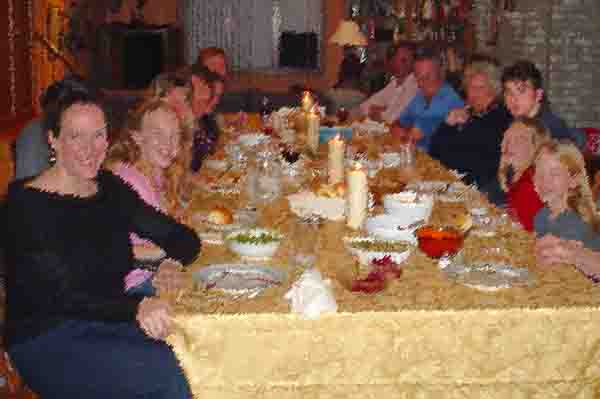
| enjoy video of part one of the Maxwell Baumbach Feature which includes this poem (and also has an intro of Maxwell Baumbach poetry accepted in issues of cc&d magazine by editor and the Café host Janet Kuypers) |
|
|
Maxwell Baumbach BioMaxwell Baumbach is a poet from Elmhurst, IL. He edits the Heavy Hands Ink publication, has a youtube channel (Youtube.com/MaxwellThePoet), and likes sports. His first chapbook, “Suburban Rhythm,” was recently published by cc&d through Scars Publications. It is available both as a free read and as an ISBN # book.
|
The PigeonLucy Winrow
The bare trees clawed
Brown leaves crunched
The leaves blew and I was reminded
At that moment a pigeon flew
|
Santa Missed Our ChimneyDan Fitzgerald
Your letter came today.
The plane
A flag snapped in the cold air A slow coffin descended.
We took you home
|
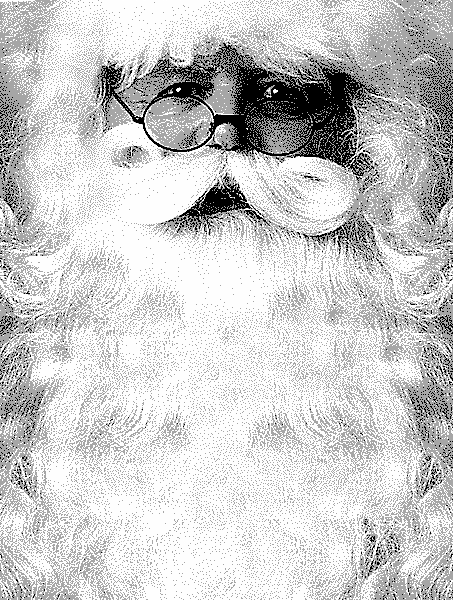
Poem from The Hartford Epic (#1)Kenneth DiMaggio
3:30 a.m.
And if the cop keeps
|
Never cry in the showerMichael Hoag
Never cry in the shower
|
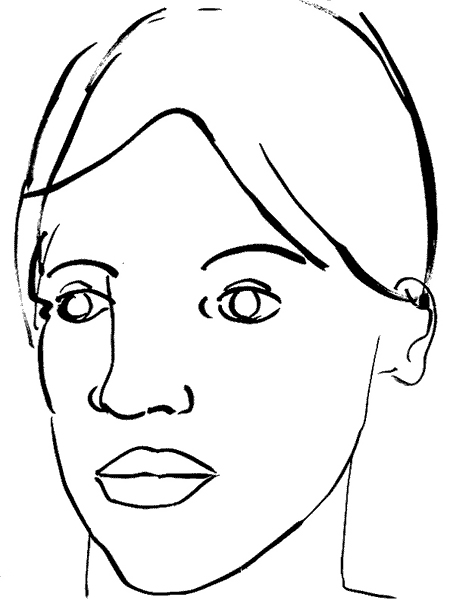
drawing by Michael Hoag
| Michael Hoag reading his poem Never Cry in the Shower from the April 2011 issue (v219) of cc&d magazine (which is also available as a 6" x 9" ISBN# book Falling Into Place |
|
Watch this YouTube video read live 04/12/11, live at the Café in Chicago |
CubicleMarcin J. Kuhn
this cubicle
rejected by the people
existence is a labor
her tears turn to daggers
I bleed the blood
hope is a trickster
|
Marcin J. Kuhn BiographyMarcin was born in Krakow, Poland and came here with his family when he was four years old. He first started writing poetry when he was in high school, poetry actually preventing him from failing ninth grade English. He has written poetry on and off since, concentrating mostly on lyrics for the various musical projects he engages in. Recently, Marcin has made a return to poetry. He still retains the intensity and range of his earlier work, but writes with a more experienced eye. It is a sweeping vision of the times we live in, both brutal and beautiful. Marcin’s adventures through it all are reflected and interpreted in his body of work. He currently resides in New York.
|
The PoetSid Yiddish
I detest the poet
The young poet pretends
The slamming poet
The academic, all hail the academic
Oh the poet!
The holy poet, that beatnik scruff
The poet.
|
Cycles of The SunKevin Heaton
As the sun shares her light
Nuclear warheads wait.
|
Kevin Heaton bioKevin Heaton lives and writes in South Carolina. His chapbook, “Postcards of Faith,” is at Victorian Violet Press. His work has appeared in: Foliate Oak, Elimae, The Recusant, Heavy Hands Ink, Carcinogenic Poetry, Pirene’s Fountain, Counterexample Poetics, and many others.
|
| Janet Kuypers reading the Kevin Heaton poem Cycles of the Sun from the April 2011 issue (v219) of cc&d magazine (which is also available as a 6" x 9" ISBN# book Falling Into Place |
|
Watch this YouTube video read live 04/05/11, live at the Café in Chicago |
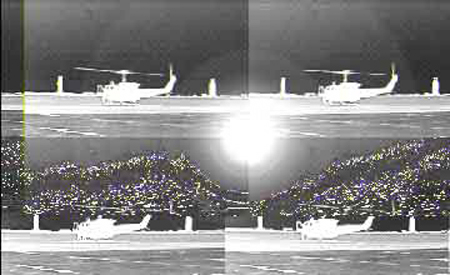
Fly By Night, art by Mark Graham
On Several Adventures in Municipal GovernmentMichael CeraoloI
It was the traditional tripe
|
On Several Adventures
in Minicipal Government (I)
from the April 2011 issue (v219) of cc&d magazine (which is also available as a 6" x 9" ISBN# book Falling Into Place
Watch this YouTube video
read live 04/05/11, live at the Café in Chicago
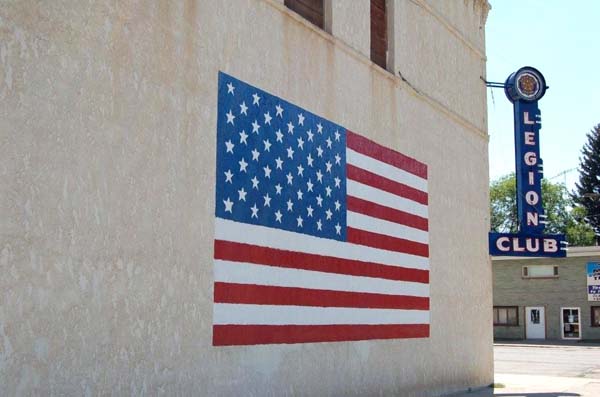
summer2007 #288, art by David Thompson
At Twenty-FourLuis Cuauhtemoc Berriozabal
At twenty-four
The sadness inside
I had no beasts after me.
There are words
I escaped the crime
I did not seek a gun
I stand, I remain alive.
|
Brooklyn DreamsMel Waldman
Brooklyn Dreams,
|

BIOMel Waldman, Ph. D.
|

prose
the meat and potatoes stuff
The RooftopAnne Turner Taub
It was an old building in the heart of New York, and like many old buildings, had become more and more expensive as it became older and more dilapidated. Now that it was in the last stages of graceful urban decay, rents had become higher than the cost of a car. Rosamund Wills had decided to end it all and jump to the street from its ripped-up tarry roof. She was sick of New York, sick of the fast-forward motion of life and especially sick of her apartment which, despite being so expensive, was so small that every time she moved she hit a door knob. This was it. Today was the day. She went to the edge of the roof and looked down. Good, there were no awnings to make her think twice, and, besides, this was the only side of the building that had a direct fall to the ground. She put one foot on the red and orange ceramic tiles colorfully edging the roof.
“May I introduce myself,” he said, “I am Edward Hale, 4B. And I’d rather not go into it, if you don’t mind—it’s personal... I just would like to stand here alone, if possible.”
|
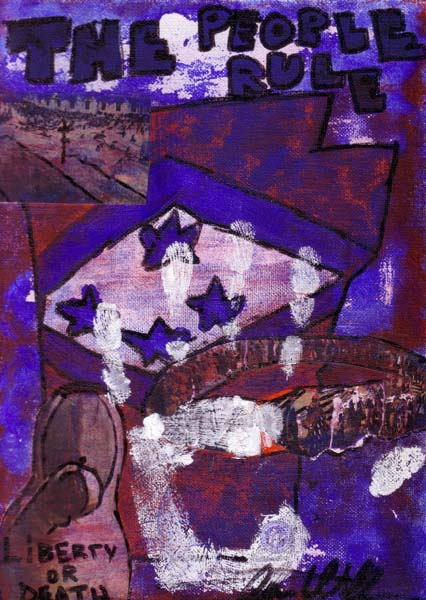
Liberty or Death, art by Aaron Wilder
Mama’s ThingsBarbara Villemez
“Damn y’all! I don’t like doing this. I feel like a vulture picking over dead meat. I need a drink and a cigarette.” Martha stood, reached for her purse and searched through it for her cigarettes. She pulled one from the pack, lit it from a lighter she picked up from the coffee table and inhaled deeply.
|

Santa Anna 61, painting by Jay Marvin
Dream WorldRonald Brunsky
“Governor’s mansion...... this is the late night answering service. May I help you?
|
Religion or PoliticsJames R. Silvestri
“Well, grow wings and fly here,” Norah replied into the cell phone through chattering teeth. It had sounded a bit surlier than she intended.
Kay had always been unflinchingly nice to Norah, and refrained from asking few questions of sustenance. Had she pressed, she would’ve learned just what sort of world Cody was marrying into, the sort of territory he dared to tread when he agreed to attend college in New York City.
The outside winds continued to howl, and the snowdrifts continued to rise. Norah and Kay now sat on the couch, completely silent since Norah’s last speech. They continued to thumb through photo albums, but there was no narration. Cody was very, very late. There had been no more calls.
|
James R. Silvestri BioJames. R. Silvestri is the author of several short stories and three screenplays, one of which, “Bag Man Ray,” is currently in production. His short story “The Amazing Carlos” appears in November 2010’s debut issue of “Sci-Fi Short Story Magazine.” He is a native and current resident of Queens, New York, and currently teaches at the TCI School of Technology in Manhattan.
|
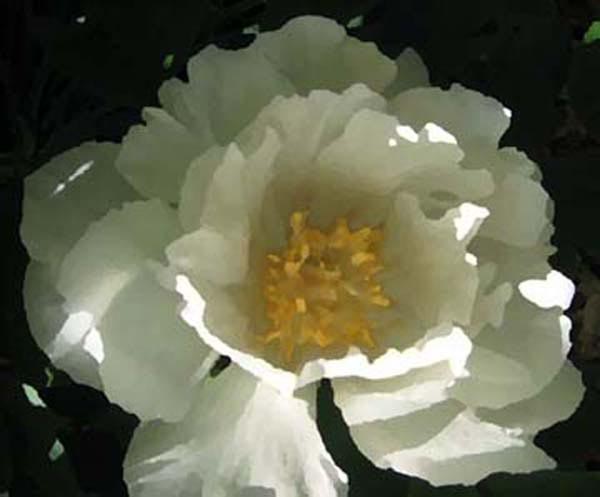
Shaded Peony - Palete Knife, art by Cheryl Townsend
The Secrets We KeepErica McBeth
It was 12:30 am when the car pulled up to the front of the San Francisco Municipal Building. The streets were wet, still soaking up the effects of an earlier rain and a light fog had begun to sweep into the city making everything feel as if it were an illusion. It was my kind of night.
|

eleven thirty peee mm, art by Nick Brazinsky
Good NewsThomas Horan
It was Morning in America. A Pharisee would argue that, strictly speaking, it was Sunday afternoon—July 13th—in Bethlehem, Illinois. Tent revival season. Demolition derbies and greased pigs. But in the bigger scheme of things, it was Morning in America. The sun was resurrecting Old Glory over sprinkled lawns and misty fields of corn. A rosy-fingered dawn.
Rule number 1: I make the rules.
July came on worse than ever. The TV weatherman out of Terre Haute, the young one with the pouty lips and the freakish white hair—a meteorological Truman Capote—was blaming it on the advent of what he called El Niño. This El Niño was supposed to rupture weather patterns all over the world. There was talk of droughts, of floods, of tempests—even a new Ice Age.
|
About Thomas HoranThomas Horan is a writer and photographer living in Saint Louis, Missouri. He has earned degrees in both English Literature and Creative Writing from Southern Illinois University Carbondale and is currently pursuing his MFA in Creative Writing at Lindenwood University in Saint Charles, Missouri. His work has received several awards, including the 2005 James Jones Award for Short Fiction for his story, “Ivy.”
|

Bellevue Meydenbauer Bridge Park, oil on canvas by Brian Forrest
SignsMelissa Kosciuszkofirst published with Foliate Oak Literary Magazine
They say signs are everywhere. They are. And I’m not talking about signs from God, or psychic intuition, or even your wife’s mixed signals. Some of the best signs are real—clearly readable. They are made of paper and cardboard and plastic, neatly printed in marker, typed in word, or printed on a press.
Now, I don’t personally mind a backwards cap or one of those cheap tank tops, if the man be worth looking at. I suppose I like it so much because it is not politically correct—and the business owner doesn’t care. Freedom of speech, freedom to have your own opinion, is still alive and well in America.
It was printed in neat, clear letters. He was an accomplished drunk—he could still write straight even while inebriated, and he was definitely toasted. We had to give the guy a buck simply for the honesty.
|
The Little Green PailBob Rashkow
He entered the park at Greenview and Lill. It was a beautiful Indian Summer evening in Chicago, hardly a cloud visible, and he had time he needed to kill. As he walked around the sandbox, a vicious-looking dog yelped at him and he was momentarily distracted, but he continued to an empty bench, feeling already suspect. This bench was a good spot to sit and nurse his large Diet Coke from Mr. Sub. It faced part of the playground, and he could easily view the “action”—pretty much whatever came his way or presented itself. He sat down and gently placed the paper cup next to him. “Well, here it is: the Real America,” he thought, amused, to himself. “America in action. The true movers and shakers; the people you won’t see on Inside Edition or any of those shows......” It was a fairly upscale neighborhood, of this he was all too aware, and he was also quite aware of the potential danger his very existence caused: a 55-year-old man, bald, overweight, somewhat effeminate and cautious in his movements, all alone just sitting there. Just sitting there, observing the everyday antics of the stay-at-home dads and moms, their little charges skedaddling around the playground. There was even a Latino “nanny” squiring 2 white children around while she spoke, in Spanish, on a cell phone. It would have been difficult for him to believe that the silent, seemingly well-behaved little kids in the stroller were actually her own. Privilege has its privileges, he thought.
|
| Bob Rashkow reading his short story the Little Green Pail from the April 2011 issue (v219) of cc&d magazine (which is also available as a 6" x 9" ISBN# book Falling Into Place |
|
Watch this YouTube video read live 04/05/11, live at the Café in Chicago |
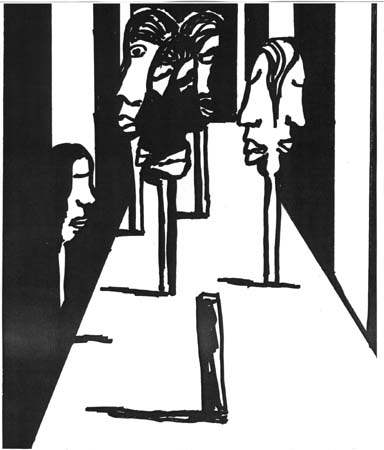
Lonely Street, art by Edward Michael O’Durr Supranowicz
Gateway DrugKyle Garret
I am a guided missile without the guidance.
|
La Troff: The Famous Revolving RestaurantWes Heine
The La Troff is always open. All well-established species are feasting there on the windy tower of night. Anything that is anything, makes an appearance before it becomes something else. Friends may come and go, but the party never ends. It is a never-ending parade of consumption streaming out of UN-blinking faces eating each other as they wait in line. Swallowing tails and birthing mouths, vast beings too large to see excrete new variations of mutated children who are eaten by lower life forms lurking under the silk tablecloths.
The Maitre’ De at the La Troff nervously twisted his handlebar mustache between his thumb and index finger as if to sharpen the ends for battle.
|
FreaksBarbara D’Souza
Madeleine’s best friend Sam is getting married tomorrow, and she is the maid of honor. They are both 28, and she is still single. She would be depressed about this, except that she is so happy. They are at the rehearsal dinner now, and she is sitting next to the best-looking man she has ever seen (other than Sam himself, of course). She wants to ask him The Question, but she hasn’t yet. She doesn’t have the nerve; she doesn’t want to seem interested.
She did meet Sam at the circus – she wasn’t making that up. It was her 20th birthday, and she had just finished setting a Low Fat Cookbook – her mother’s gift – on fire. She even bought marshmallows and toasted them in the flame while she enjoyed the irony.
She was having a bad day when Sam invited her to his apartment to study. At first she thought nothing of this, until he asked her to bring some alcohol (if she could get her hands on any). She thought this request had to have romantic implications, so she spent most of the day deciding on what outfit to wear. Finally she decided on her favorite black blouse – slimming – and her new black pants.
|
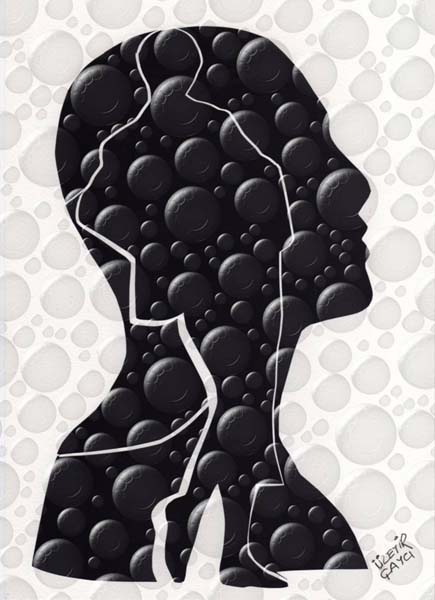
ART398AK, art by Üzeyir Lokman ÇAYCI

Debra Purdy Kong, writer, British Columbia, Canada I like the magazine a lot. I like the spacious lay-out and the different coloured pages and the variety of writer’s styles. Too many literary magazines read as if everyone graduated from the same course. We need to collect more voices like these and send them everywhere.
Children, Churches and Daddies. It speaks for itself. Write to Scars Publications to submit poetry, prose and artwork to Children, Churches and Daddies literary magazine, or to inquire about having your own chapbook, and maybe a few reviews like these.
what is veganism? A vegan (VEE-gun) is someone who does not consume any animal products. While vegetarians avoid flesh foods, vegans don’t consume dairy or egg products, as well as animal products in clothing and other sources. why veganism? This cruelty-free lifestyle provides many benefits, to animals, the environment and to ourselves. The meat and dairy industry abuses billions of animals. Animal agriculture takes an enormous toll on the land. Consumtion of animal products has been linked to heart disease, colon and breast cancer, osteoporosis, diabetes and a host of other conditions. so what is vegan action?
We can succeed in shifting agriculture away from factory farming, saving millions, or even billions of chickens, cows, pigs, sheep turkeys and other animals from cruelty. A vegan, cruelty-free lifestyle may be the most important step a person can take towards creatin a more just and compassionate society. Contact us for membership information, t-shirt sales or donations.
vegan action
Children, Churches and Daddies no longer distributes free contributor’s copies of issues. In order to receive issues of Children, Churches and Daddies, contact Janet Kuypers at the cc&d e-mail addres. Free electronic subscriptions are available via email. All you need to do is email ccandd@scars.tv... and ask to be added to the free cc+d electronic subscription mailing list. And you can still see issues every month at the Children, Churches and Daddies website, located at http://scars.tv
MIT Vegetarian Support Group (VSG)
functions: We also have a discussion group for all issues related to vegetarianism, which currently has about 150 members, many of whom are outside the Boston area. The group is focusing more toward outreach and evolving from what it has been in years past. We welcome new members, as well as the opportunity to inform people about the benefits of vegetarianism, to our health, the environment, animal welfare, and a variety of other issues.
Dusty Dog Reviews: These poems document a very complicated internal response to the feminine side of social existence. And as the book proceeds the poems become increasingly psychologically complex and, ultimately, fascinating and genuinely rewarding.
Dusty Dog Reviews: She opens with a poem of her own devising, which has that wintry atmosphere demonstrated in the movie version of Boris Pasternak’s Doctor Zhivago. The atmosphere of wintry white and cold, gloriously murderous cold, stark raging cold, numbing and brutalizing cold, appears almost as a character who announces to his audience, “Wisdom occurs only after a laboriously magnificent disappointment.” Alas, that our Dusty Dog for mat cannot do justice to Ms. Kuypers’ very personal layering of her poem across the page.
Fithian Press, Santa Barbara, CA Indeed, there’s a healthy balance here between wit and dark vision, romance and reality, just as there’s a good balance between words and graphics. The work shows brave self-exploration, and serves as a reminder of mortality and the fragile beauty of friendship.
Mark Blickley, writer You Have to be Published to be Appreciated. Do you want to be heard? Contact Children, Churches and Daddies about book or chapbook publishing. These reviews can be yours. Scars Publications, attention J. Kuypers. We’re only an e-mail away. Write to us.
The Center for Renewable Energy and Sustainable Technology The Solar Energy Research & Education Foundation (SEREF), a non-profit organization based in Washington, D.C., established on Earth Day 1993 the Center for Renewable Energy and Sustainable Technology (CREST) as its central project. CREST’s three principal projects are to provide: * on-site training and education workshops on the sustainable development interconnections of energy, economics and environment; * on-line distance learning/training resources on CREST’s SOLSTICE computer, available from 144 countries through email and the Internet; * on-disc training and educational resources through the use of interactive multimedia applications on CD-ROM computer discs - showcasing current achievements and future opportunities in sustainable energy development. The CREST staff also does “on the road” presentations, demonstrations, and workshops showcasing its activities and available resources. For More Information Please Contact: Deborah Anderson dja@crest.org or (202) 289-0061
Dorrance Publishing Co., Pittsburgh, PA want a review like this? contact scars about getting your own book published.
 The magazine Children Churches and Daddies is Copyright © 1993 through 2011 Scars Publications and Design. The rights of the individual pieces remain with the authors. No material may be reprinted without express permission from the author. 
Okay, nilla wafer. Listen up and listen good. How to save your life. Submit, or I’ll have to kill you.
Dorrance Publishing Co., Pittsburgh, PA: “Hope Chest in the Attic” captures the complexity of human nature and reveals startling yet profound discernments about the travesties that surge through the course of life. This collection of poetry, prose and artwork reflects sensitivity toward feminist issues concerning abuse, sexism and equality. It also probes the emotional torrent that people may experience as a reaction to the delicate topics of death, love and family. “Chain Smoking” depicts the emotional distress that afflicted a friend while he struggled to clarify his sexual ambiguity. Not only does this thought-provoking profile address the plight that homosexuals face in a homophobic society, it also characterizes the essence of friendship. “The room of the rape” is a passionate representation of the suffering rape victims experience. Vivid descriptions, rich symbolism, and candid expressions paint a shocking portrait of victory over the gripping fear that consumes the soul after a painful exploitation.
Dusty Dog Reviews (on Without You): She open with a poem of her own devising, which has that wintry atmosphere demonstrated in the movie version of Boris Pasternak’s Doctor Zhivago. The atmosphere of wintry white and cold, gloriously murderous cold, stark raging cold, numbing and brutalizing cold, appears almost as a character who announces to his audience, “Wisdom occurs only after a laboriously magnificent disappointment.” Alas, that our Dusty Dog for mat cannot do justice to Ms. Kuypers’ very personal layering of her poem across the page.
|